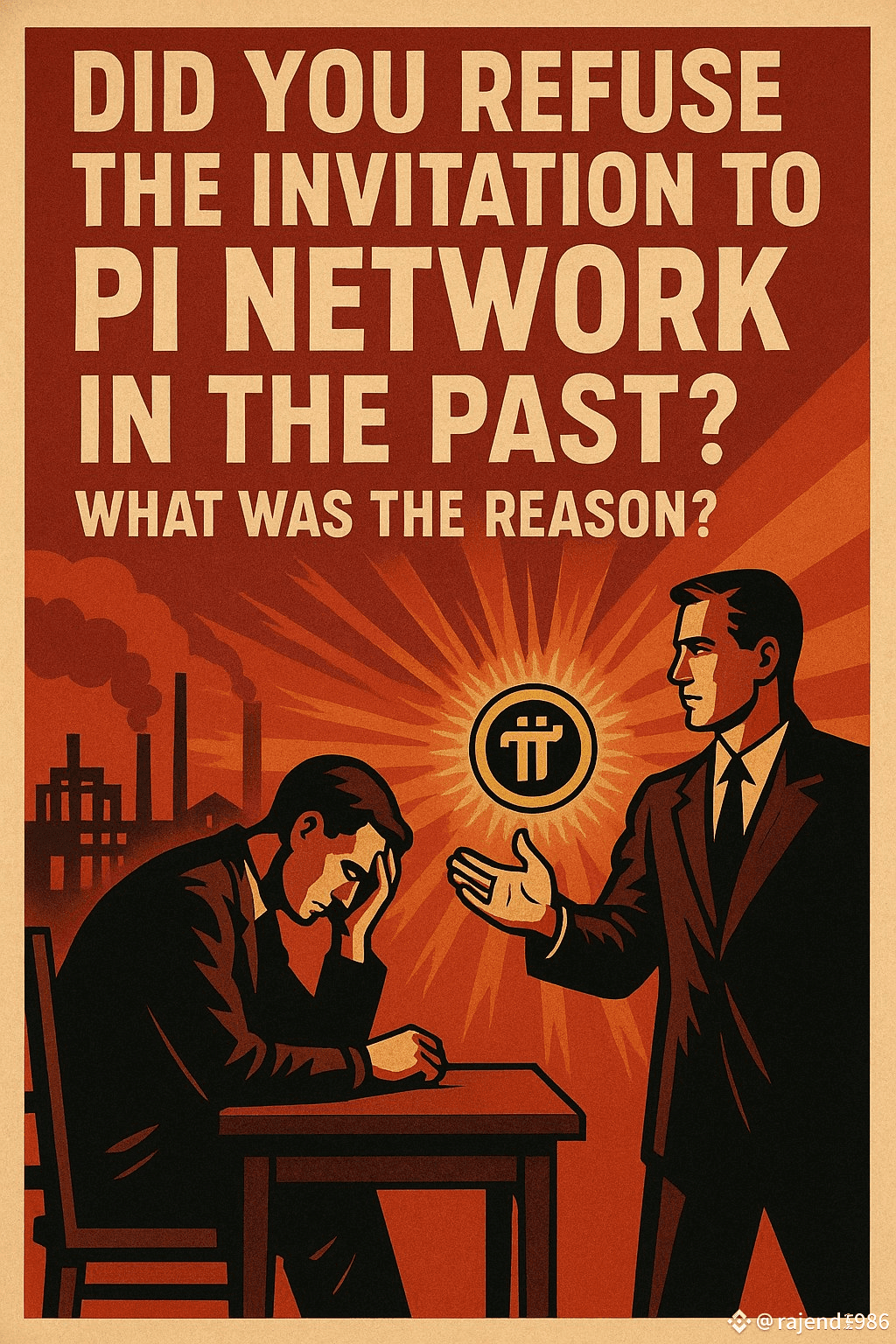Did You Refuse the Invitation to Pi Network in the Past?
What Was the Reason ?
Before you doubted the inviter, did you at least show some interest? The white paper and the founders’ introductions were publicly available!
Courage, Trust, and the Right to Be Invited in a Debt-Based World
Why Did Pi Network Only Accept a Few Early Pioneers?
From Compliance to Courage: The Shift Toward a New Economy
Economic Ethics of Those Who Declined and Those Who Invited

1. **Why Did You Refuse? A Hidden Truth**
Many received invitations to Pi Network in the past but hesitated—or outright rejected them.
Behind that decision often lay these deeper psychological patterns:
* **Fear of uncertainty**: A reflexive rejection of “anything new and decentralized”
* **Subconscious compliance**: Comfort and safety in the known legacy system
* **Distrust in the inviter**: A projection of inner doubt—“Can I even trust the person who invited me?”
But this wasn’t merely a mistake of judgment.
By saying no, they effectively chose to **remain within the architecture of a debt-based system**,
**excluding themselves from a freer financial future.**
2. **The Essence of Pi: Transcending the Debt Economy**
Pi Network is not just a crypto project—it is a blueprint for structural transformation:
* An invitation to escape the **interest-bearing, debt-driven financial system**
* A shift into a **production- and trust-based real economy**
The inviter in Pi is not a “recruiter.”
They are, in truth, **a bearer of emancipation**—a messenger of opportunity.
Their invitation was not a sales pitch.
It was a **call to become qualified** in a new financial reality.
3. **Those Who Accepted: Why They Were the Brave**
These people didn’t just install an app.
They made choices rooted in:
* **The courage to break away from the existing order**
* **The courage to be ridiculed**: Enduring the skepticism of “Why trust something like that?”
* **The intelligence to foresee structural value**: Understanding the future potential of Pi’s model
Only these people, who trusted and acted, are now **qualified to be trusted themselves**—
because Pi is a system where **trust is verified through code and contribution.**
This is **an economy of trust and courage.**
4. **The Responsibility of the Inviter: A Node of Trust**
In Pi’s design, the inviter isn’t just a referrer.
They play a critical role as:
* **A trust node**
* **A carrier of ethical transition**
* **A resistor to the legacy financial system**
To refuse such a figure was not simply to decline a utility app—
It was, in essence, to **reject the ethics of trust**, and
**retreat into the comfort of inherited compliance.**
5. **Reflection Enables Reinvitation**
Even if you rejected the invitation in the past, all hope is not lost.
But the threshold has risen.
To re-enter, you must now bring:
* **Understanding and reflection**
* **A conscious will to participate**
* **A shift from being a passive beneficiary to an active contributor**
This is not just a reset—it’s an **ethical self-renewal**.
Pi Network may still open its door—but only for those ready to live by **the principles of creation and collective trust.**
Closing Thoughts:
Pi Network is not just an app.
It’s a **project to rebuild a human-centered economy grounded in verified trust.**
And that trust begins with how you responded to the invitation.
**Did you refuse it back then?**
Then now is the time to ask:
**“Why did I say no?”**
And more importantly,
**“Am I ready to say yes now—with courage?”**